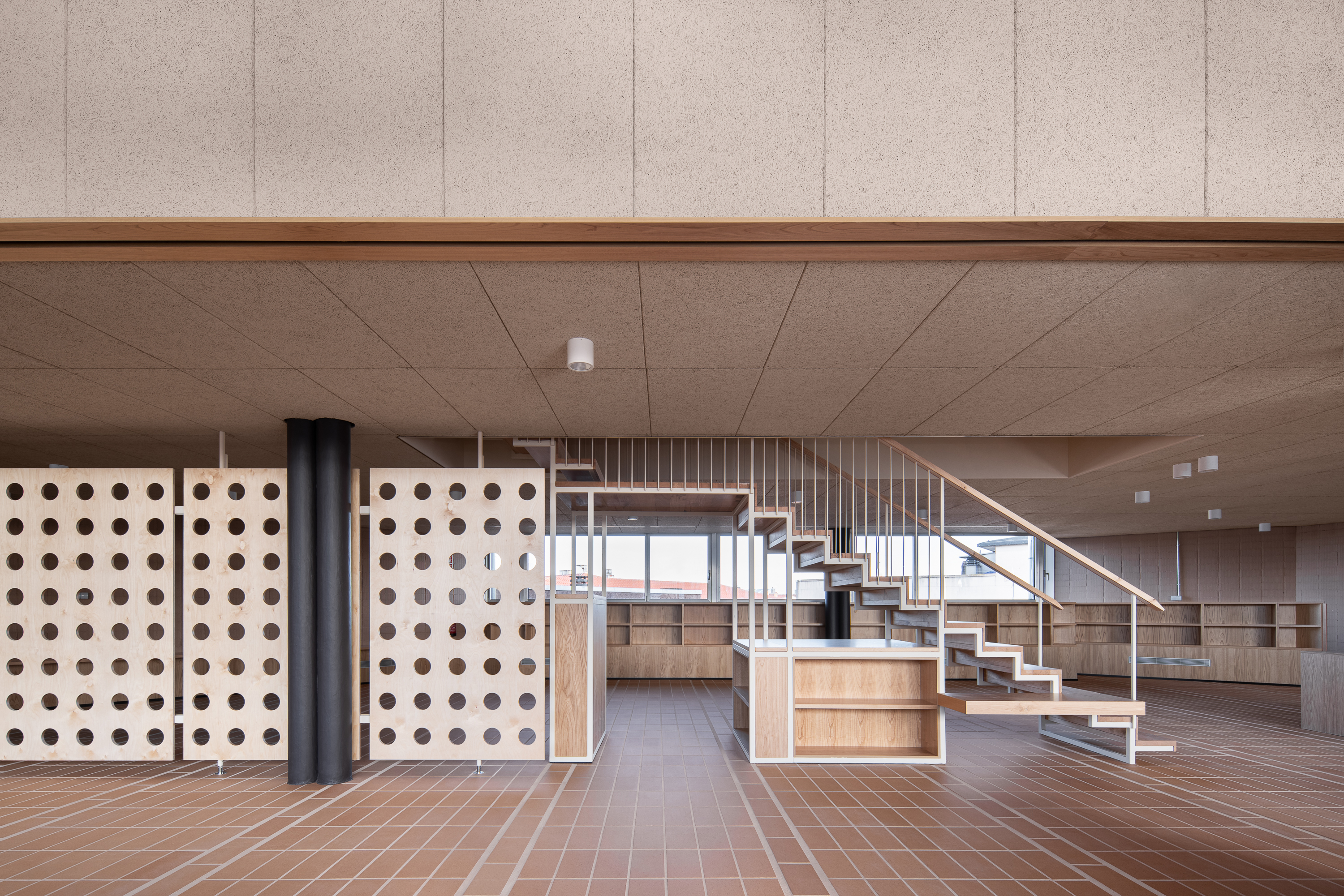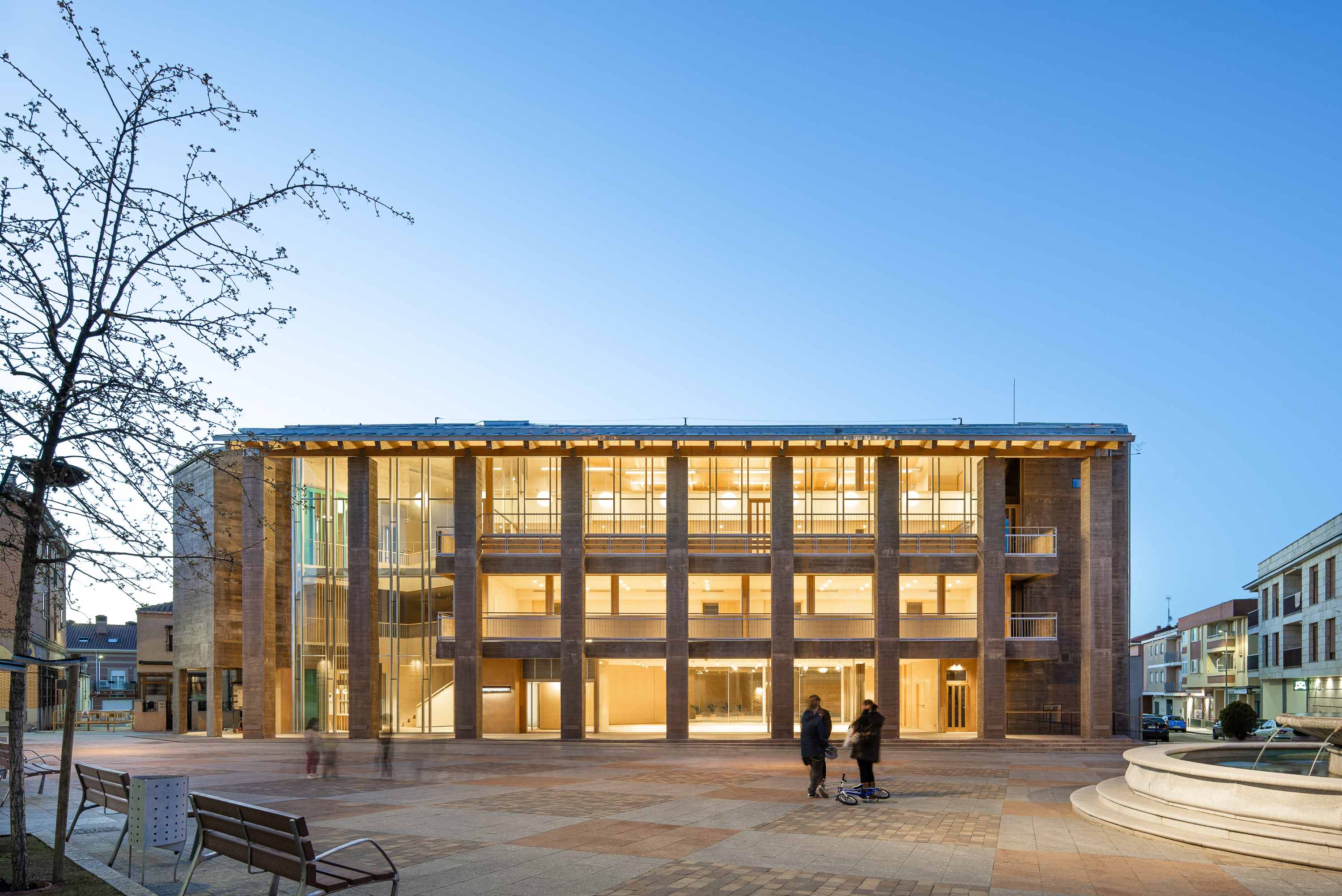Cultural SERIES • Project FEATURE
A Dialogue with History – Centro Cultural Carbajosa de la Sagrada by Gabriel Gallegos Borges
Photographer Gabriel Gallegos Alonso
Architect Gabriel Gallegos Borges
Products and Materials Cerámica Campo
Products and Materials Nueva Inercia
Products and Materials Metálicas Velilla
Products and Materials Grestejo
Lighting Design Daisalux
Products and Materials Yofra
Products and Materials Roferlo
Lighting Design RZB
Lighting Design Faro
Products and Materials Tezno
Products and Materials Blanfer
Products and Materials Ventanas Cortizo
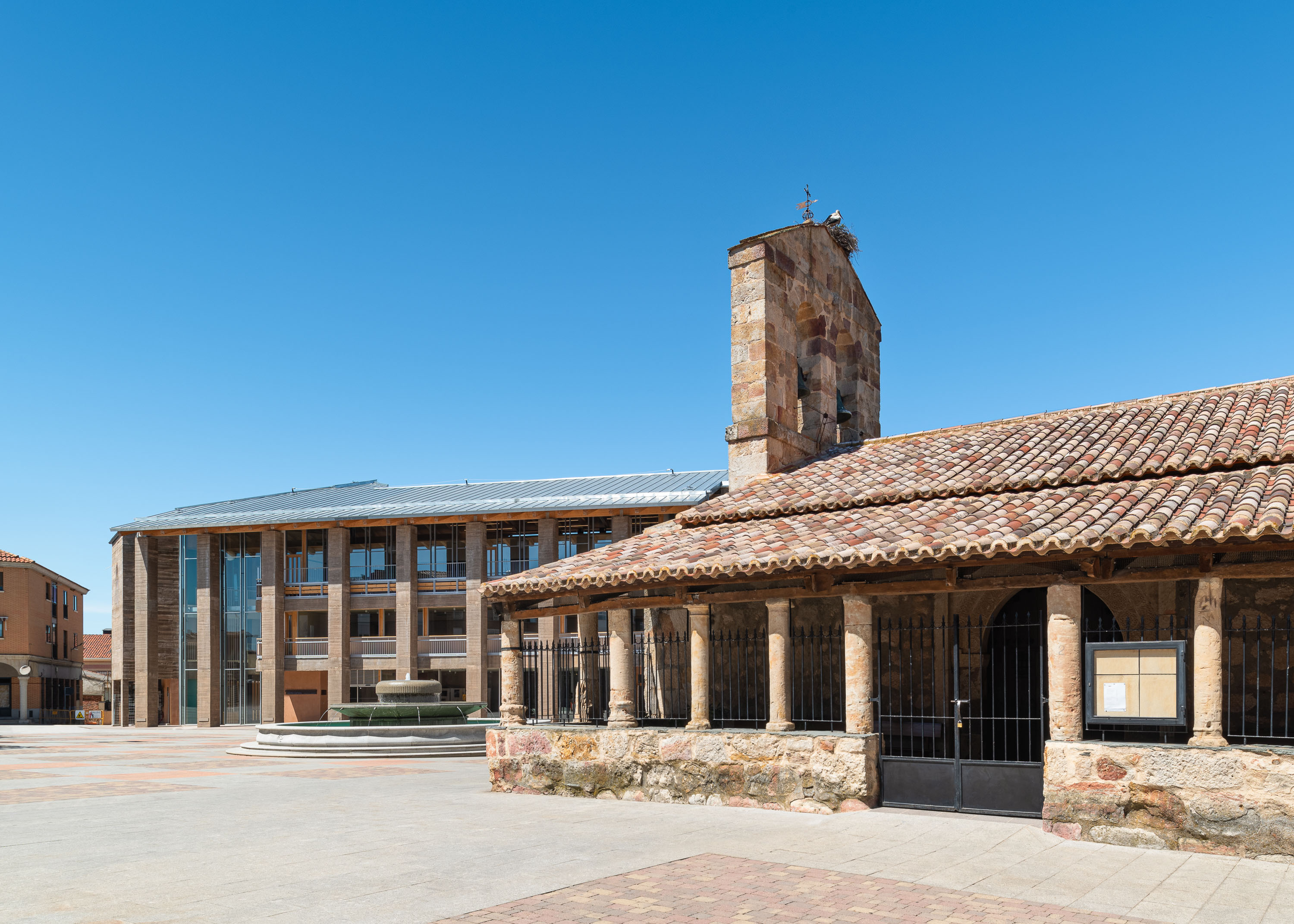
The structure’s rhythm, set by the repetition of columns, contrasts with a fluid and open interior. The plan is anchored by an irregular triangular form spanning multiple levels, shaped in response to practical considerations, including the removal of a planned basement auditorium.
Although this adjustment left certain areas, such as the triangular courtyard and lobby void, somewhat lacking in their initial intended function, they still serve as integral elements that bring natural light into the space. Service cores positioned at the edges of the triangular plan facilitate circulation while freeing the central space for diverse programming. Corridors extend from the cores to the exterior, doubling as outdoor reading and relaxation areas that enhance the building’s function as a cultural sanctuary. The entrance level houses the lobby and a multipurpose room, which seamlessly merges with the plaza through large sliding doors, further dissolving the boundary between interior and exterior. Ascending to the first floor, classrooms provide flexible spaces for various educational and cultural activities. The library occupies the upper levels, where an internal staircase connects the two floors. A double-height space visually links these levels to the portico outside, with a terrace extending from the library, offering an outdoor reading area.
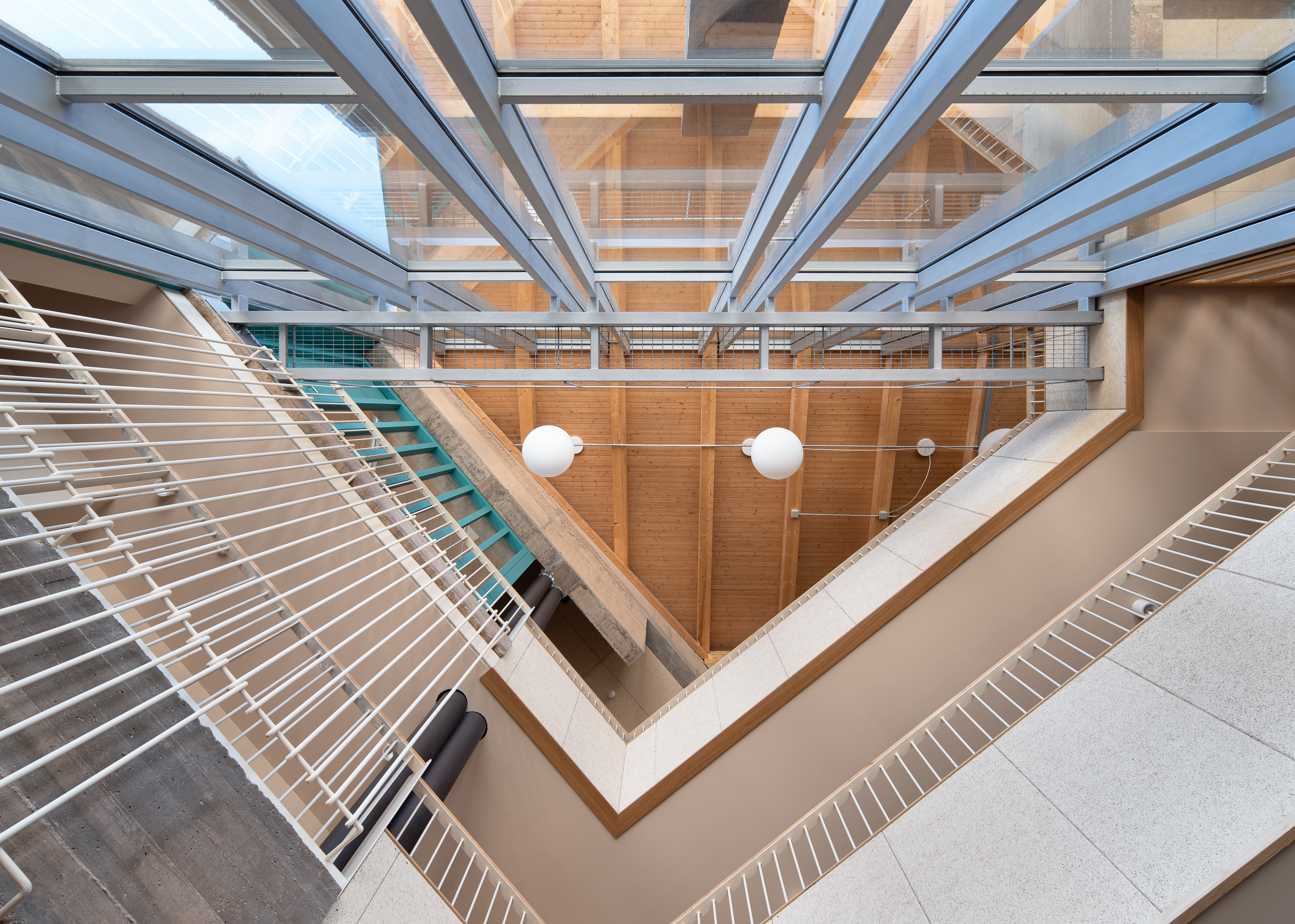
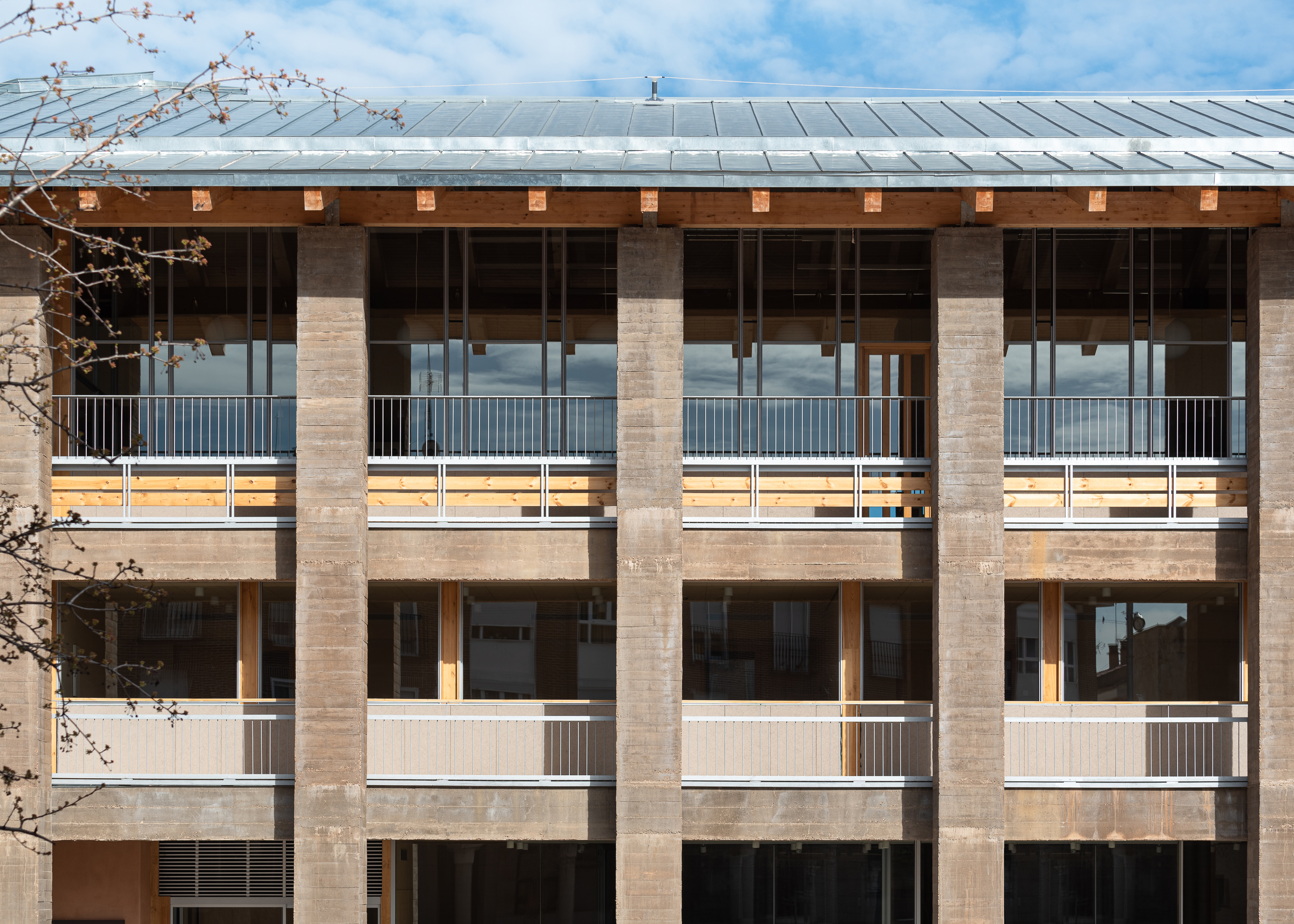
"Embedded in history, the Centro Cultural serves as a bridge between the past and present."
The design emphasizes the center’s role as a place of learning, interaction, and cultural development. By rooting itself in local history while introducing a contemporary architectural language, it forms a dialogue between the past and the present. This connection is most evident in the way the Centro Cultural adopts elements from the surrounding historic environment, not by replicating them but by reinterpreting them in a manner that aligns with modern functional and aesthetic needs.

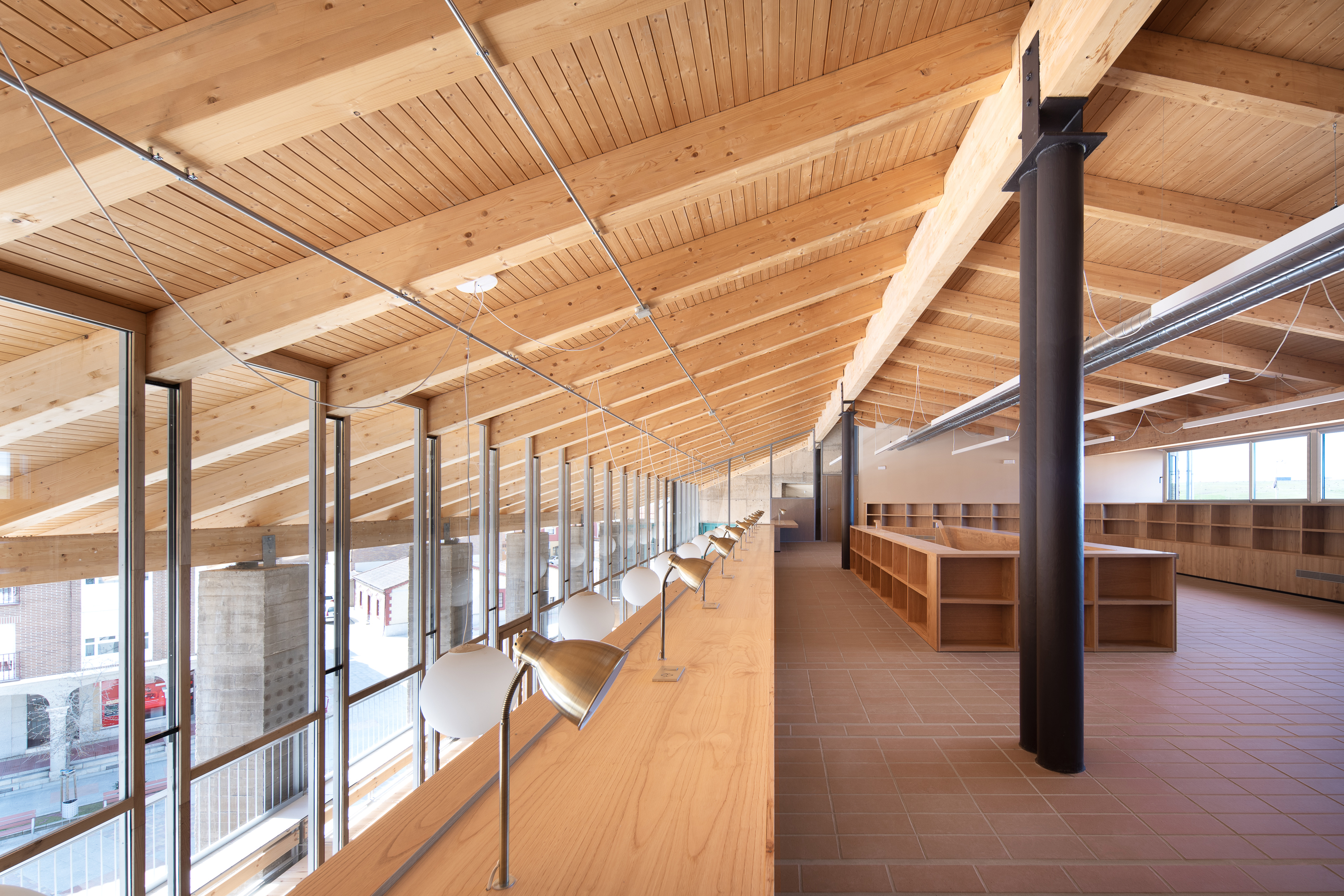
In its architectural vocabulary, the Centro Cultural balances references to tradition with a forward-looking approach. The rhythmic arrangement of columns and open portico draw from classical archetypes, reminiscent of ancient Greek stoas, which were designed for public gatherings. However, the adaptation is not mere mimicry but a thoughtful response to the site’s unique context, using these historical forms to shape spaces that serve current cultural demands.
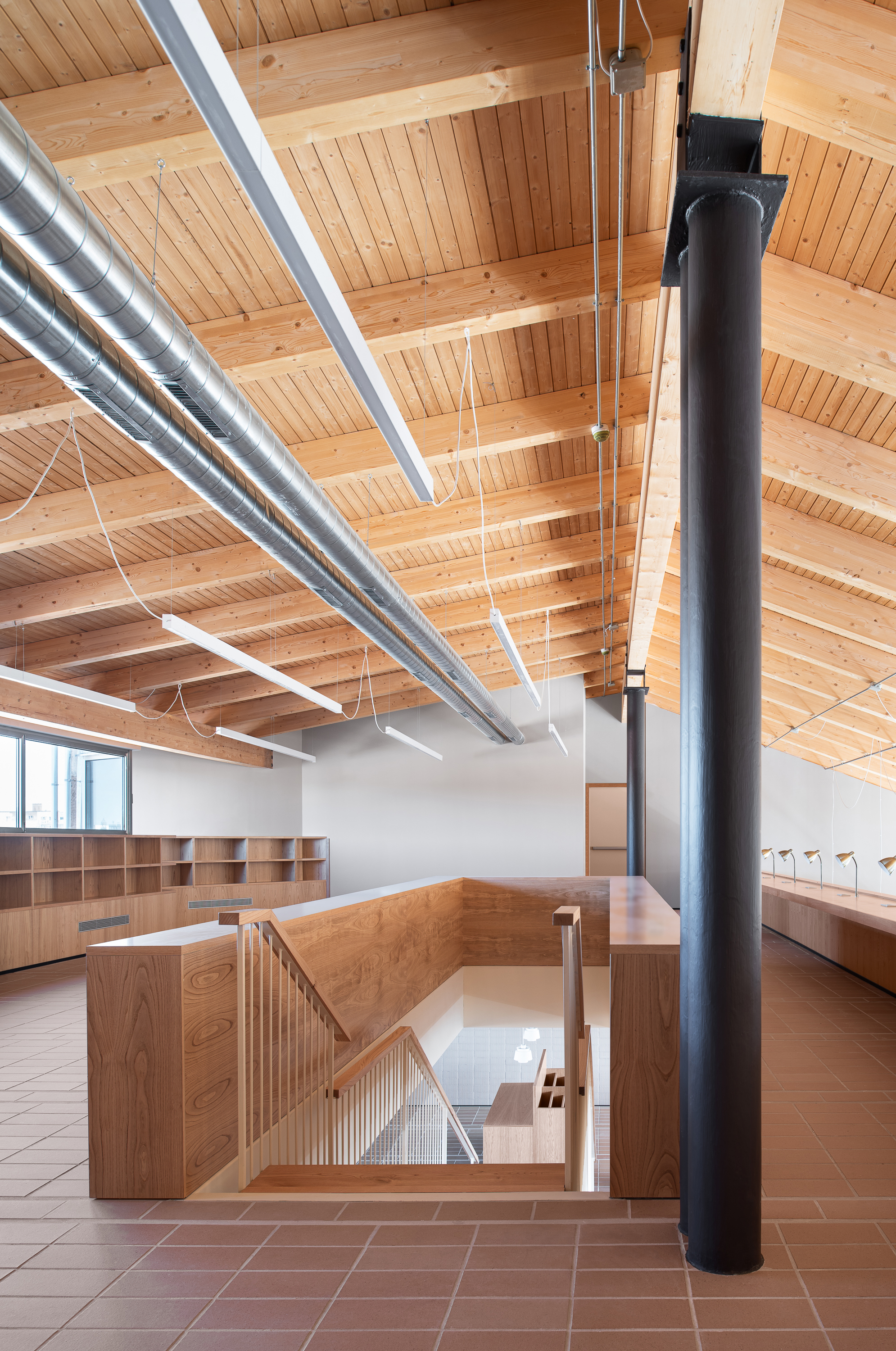
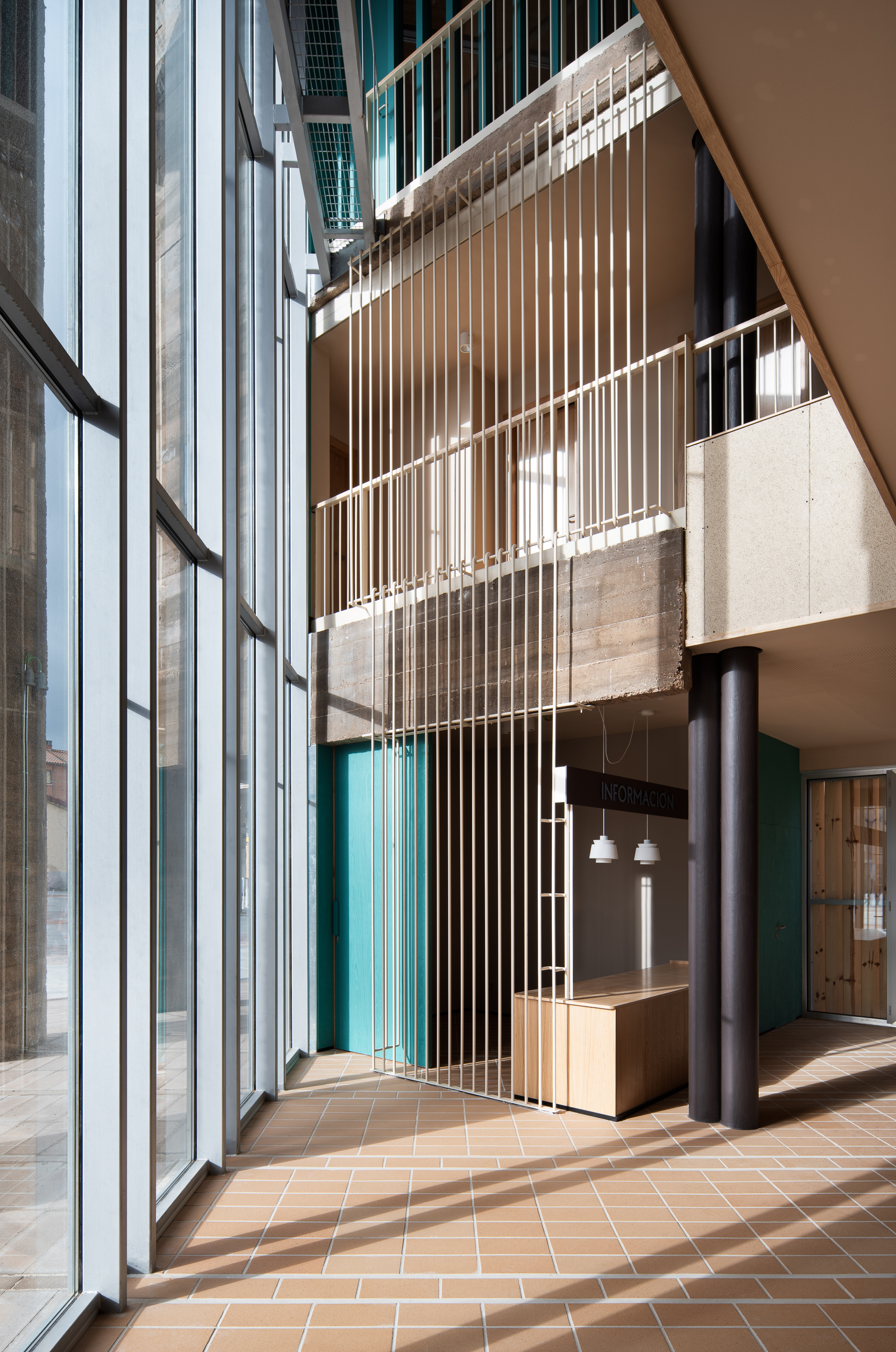
"A vibrant cultural hub that invites the community to connect, learn, and celebrate."
Functionality and adaptability are embedded in the building’s DNA. The flexible layout accommodates diverse cultural activities, from exhibitions and workshops to community events. This versatility ensures that the space remains active and relevant, fostering a sense of ownership and connection among the town's residents. The interior spaces are not confined to singular uses but instead offer an array of possibilities for cultural expression and communal experiences.
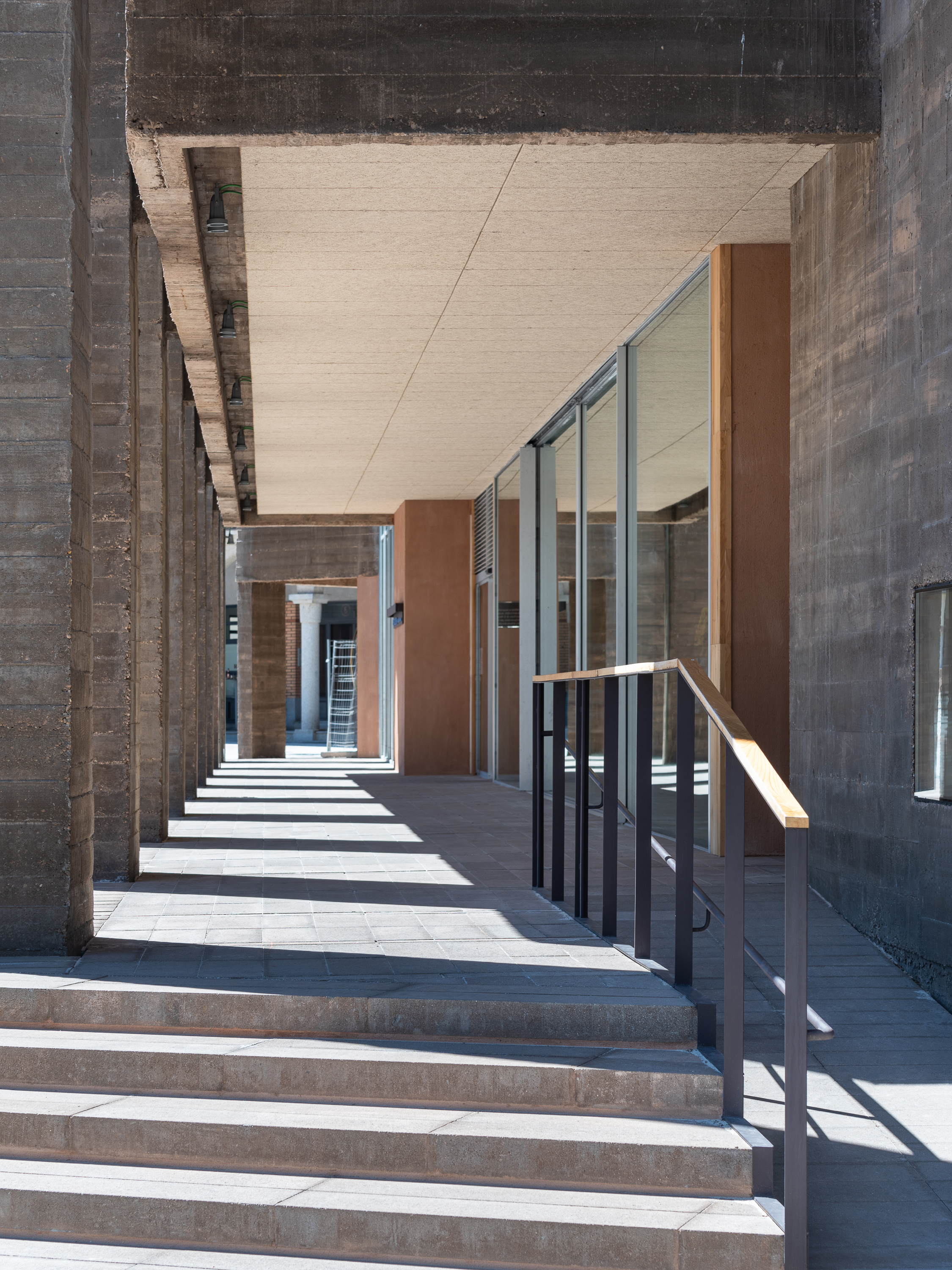

The Centro Cultural also introduces a sustainable approach to architectural design, blending modern techniques with traditional elements to create a building that is both environmentally conscious and culturally significant. The use of natural light, facilitated by the courtyard and double-height spaces, reduces the need for artificial lighting, while the portico’s design helps regulate indoor temperatures by minimizing direct solar exposure during the day. These strategies not only enhance the comfort of the interior spaces but also reduce the building's environmental footprint, aligning the project with contemporary values of sustainability and responsible design.
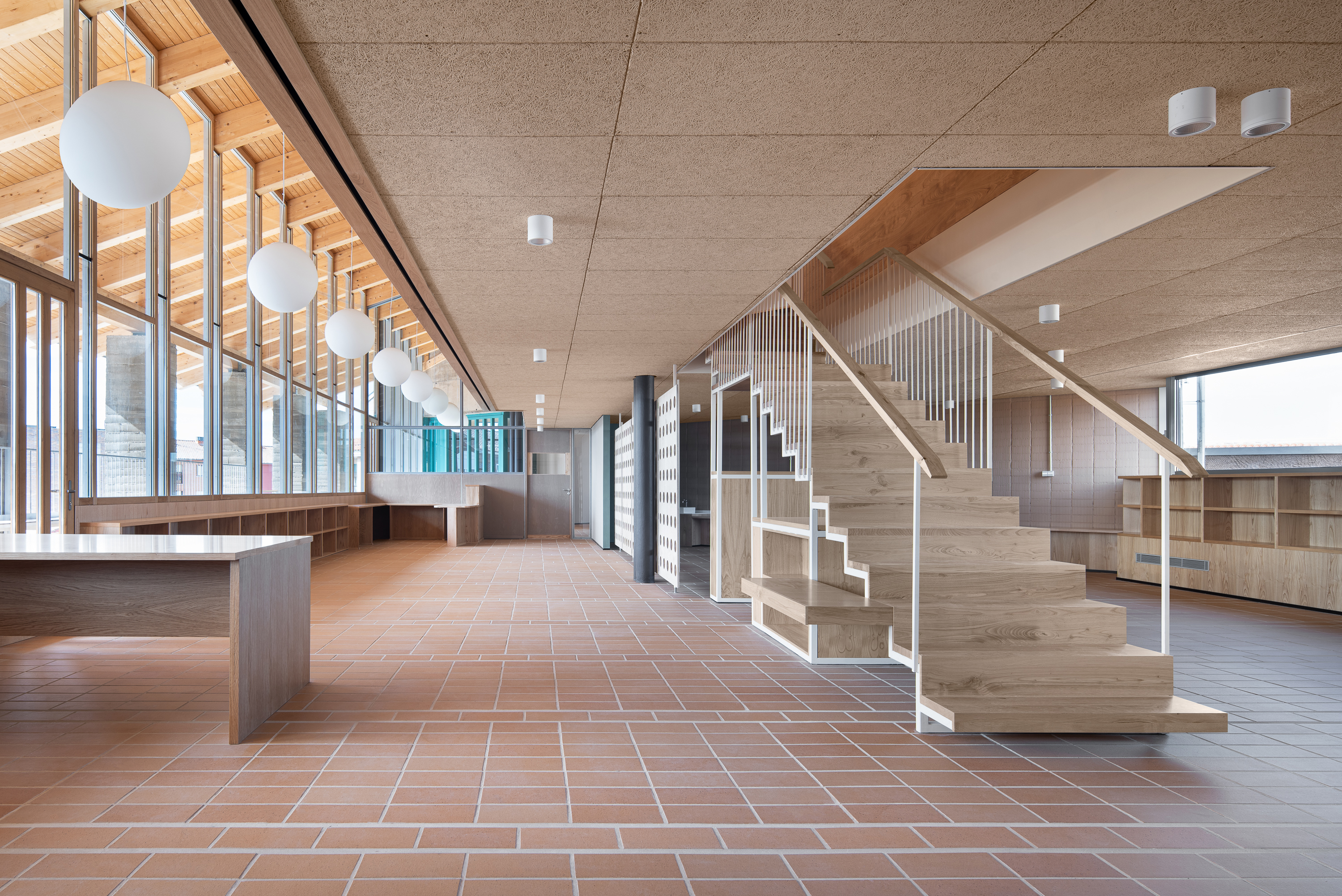
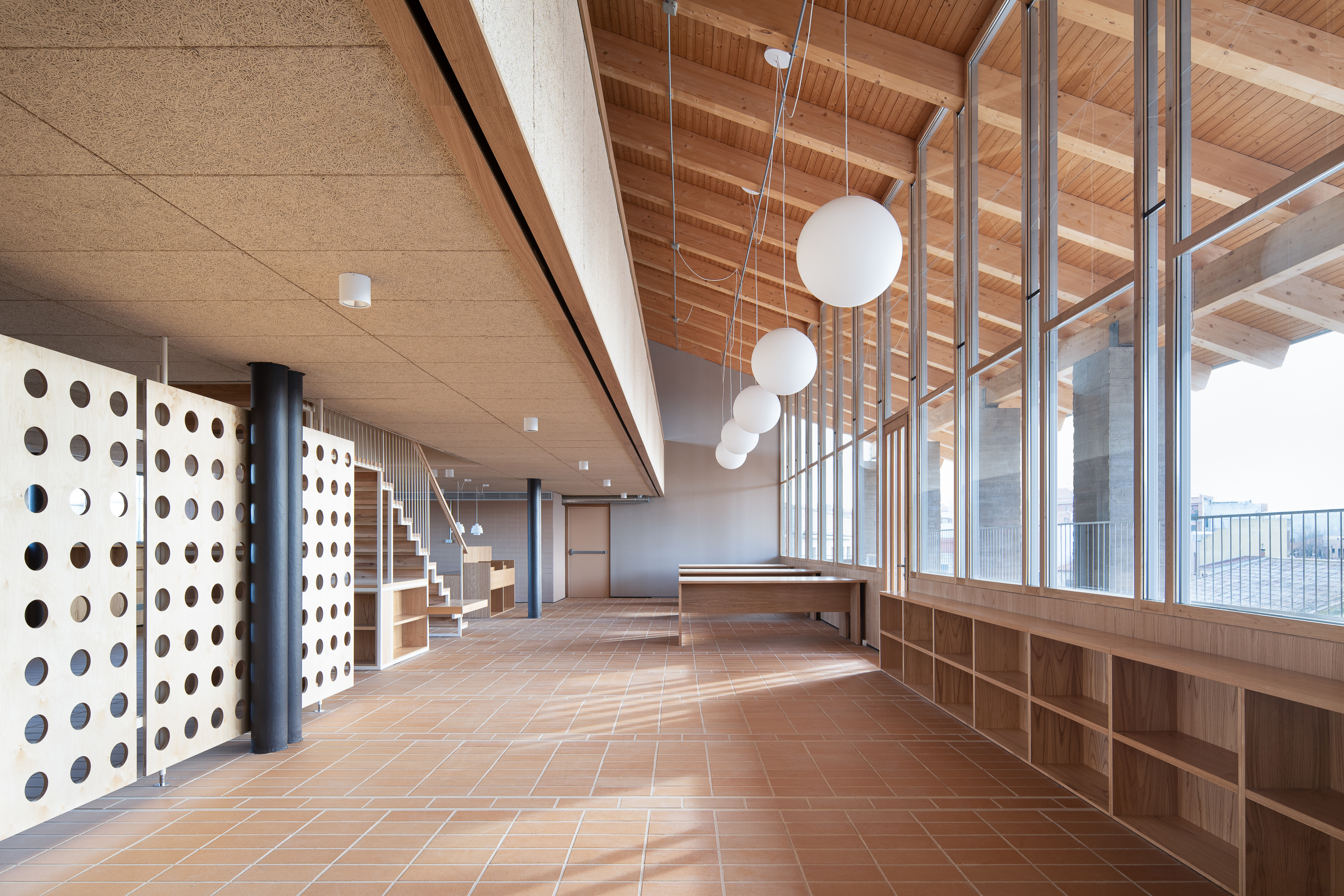
Furthermore, the Centro Cultural plays a crucial role in revitalizing the Plaza de la Constitución, turning it into a focal point for social and cultural life in Carbajosa de la Sagrada. By opening up to the plaza and creating visual and physical connections, the building encourages interaction between the indoor cultural activities and the outdoor public realm. This seamless integration transforms the plaza into an extension of the cultural center, where art, learning, and community events spill into the public space, enriching the urban experience and fostering a stronger sense of belonging and civic pride among the town’s residents.
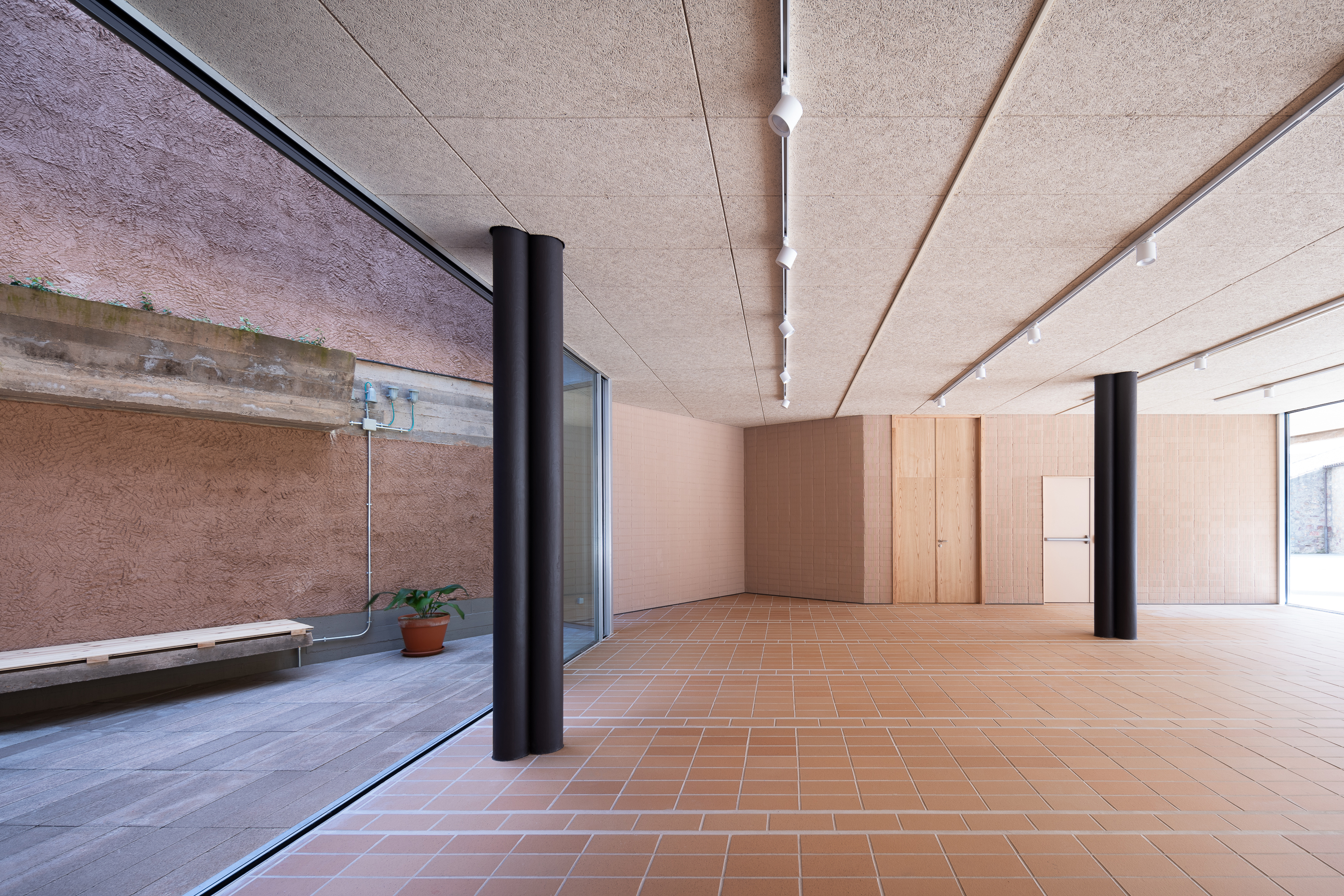
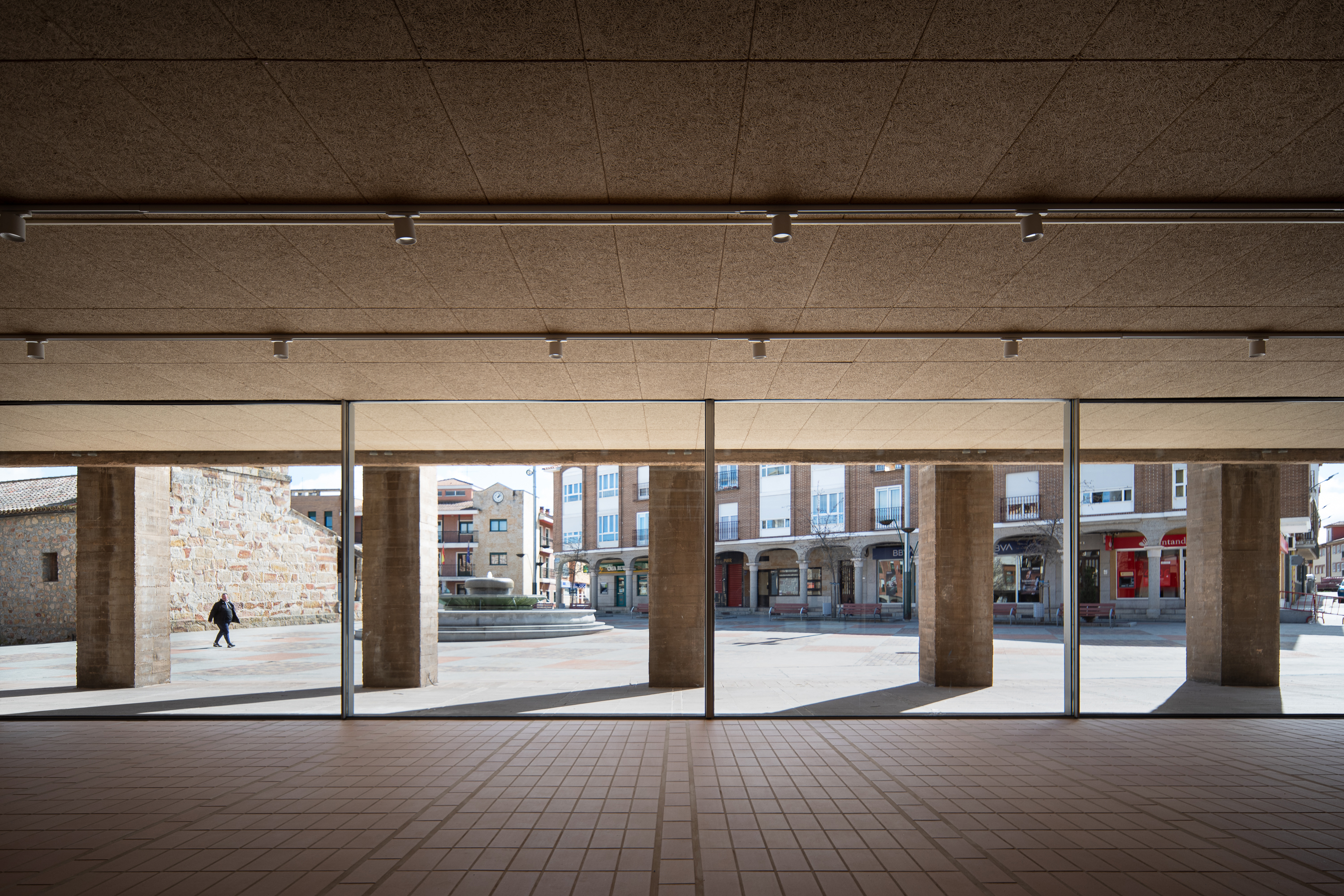
The architectural language employed by Gabriel Gallegos Borges at the Centro Cultural speaks to an ongoing narrative of cultural exchange. It underscores the importance of creating spaces that are not only rooted in history but also capable of evolving alongside the community they serve. In doing so, the cultural center becomes more than just a building; it is a living part of Carbajosa de la Sagrada's social and cultural fabric.
